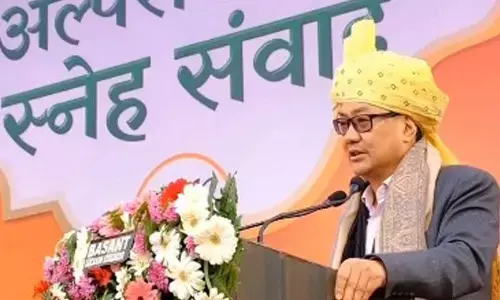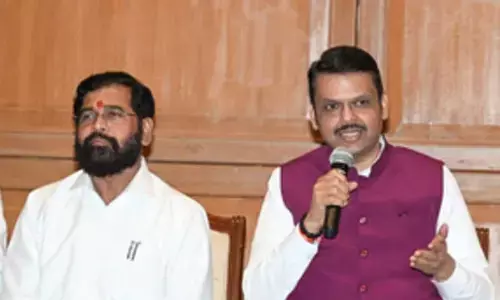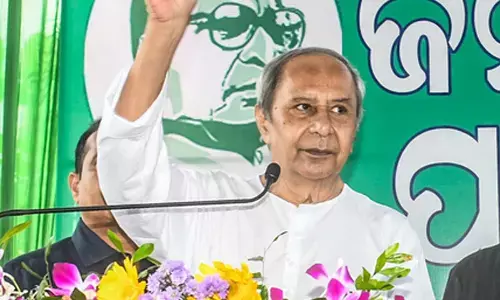Pawan's ISM book: A summary

Pawan Kalyan Launched ISM Book: A Summary, Jana Sena Ideology Book. Most attractive cover page...total 145 pages...12 chapters...based on the social wellbeing and social justice as the point of focus.
Most attractive cover page...total 145 pages...12 chapters...based on the social wellbeing and social justice as the point of focus...entrenched with philosophical values...ISM is nothing but the following of good that prevails in the thoughts of a human being...ISM, the book co-authored by Pawan Kalyan along with his friend Raja Raviteja will be unveiled on Thursday at Visakhapatnam. The beginning of the book goes with a thought provoking dictum: Noble things are never easy nor they are common. This book is dedicated to all those who strives hard for the sake of fair dealing. The writers made it a mention that the word ‘state’ used in the book was used in synonymous with country in the book. They also made it a mention that the word ‘community’ has not been used in synonymous with caste.

What is ISM?
What made to give the title of the book as “ISM” has been mentioned by Pawan Kalyan. The writers opined that as far they are concerned, for them ISM means Idealism. They held it allusion to the society and said that Janasena party’s ideology was also ISM. What becomes good to the society should be good for all political parties as well, is the Janasena party’s ideology. The writers mentioned that idealism for them was not emotional argument rather it was true idealism.
This is my ideology
Pawan Kalyan mentioned that a question has been constantly following him from his childhood. That question was nothing but...how to live without any fear? He introduced his feelings with the title ‘My quest for an ideology’. What is the difference between good and bad, how to identify the two...are the questions... when we do good we don’t have fear and the soul remains peaceful and we feel very happy internally. The happiness generated during the process of doing well not gives happiness to the individual alone, but also to the entire society where we live in. Nevertheless, Pawan poses a question to all the leaders (not alone the political leaders, but also leaders from various sectors of the society) whether it was fair for them to not bother to understand themselves as well as going by their one way without analysing the sway their deeds would have on the future generations. He mentions that in order to come out of fear and the state of helplessness, one needs to see self with the eyes that criticise identity. He mentions that he has been searching for the ideology that makes a person to live without fear. He continues telling that he examined communism, separatism, the ideologies based on caste, the ideologies based on religion et al. Nevertheless, mentions Pawan that he could not find appropriate solution to his problem in all these. He said that the issues that have been discussed in the book will be useful not only for him but for every single one. He mentioned that the book mirrors the ideology of Janasena party. “I praise the nature which reminds me that I am just an atom in this universe...I dedicate myself to such universe”.
The foreword of the book was written by Raviteja. They mentioned that the book was written during 2007-2008. However, bring ups Raviteja that before publishing the book few changes were made to existing manuscript in accordance to the feelings of Pawan Kalyan. Raviteja praised Pawan Kalyan as an amazing man. Raviteja also mentions that more 18 books have been written by them jointly in his foreword. Finally, he also mentions that Jnana has been emerged out from Karma ideology.
It begins in this way…
Raja Raviteja mentions that ISM is the ideological declaration of Pawan Kalyan. In the first chapter, “How ISM was conceived and returned”, it is brought up that the book was thought of when Pawan Kalyan wanted to set up a relationship between the people and beliefs. For last 30yrs Pawan has been bothering about the guidelines to be imposed on the society. The answer to the ibid question is put forward in the format of ISM. In the second chapter, “The purpose of an ideology”, the authors make it a mention that this book will show directions to all those who want to strive hard for social justice and behavioral change. They also continue stating that the decree that has been quoted in this book is a straight forward version, so, it may astound few people.
Darkness…hankers after…immoral
In the third chapter, “Introduction: the case for an ideological basis”, the authors state that at present our country is running after darkness. The country has been confined to the hands of vigorous people with a strong criminal mentality. People are falling fray into the dike of differences. The obscurity has been pushing good quality aside, thereby paving a way for the impotent, unethical, anti-social and spiritual forces to attain power. There is no generalization whether it is the ruling or opposition or coalition of parties, all are identical. The present situation is the dais for criminal, hopeless and unanswerable politics. At this juncture, we strive for such a person who has become strapping with ideological values.
Politics is not what is meant attainment of authority or governance. Politics means to put the country in the right track. This is the new definition given by the authors of ISM in this third chapter. They have also mentioned that politics is a sort of liability. They have even gone on describing the modus operandi for politics. The authors state that the best thing should always attain the top position while the worst thing should attain the lowest position. They also go on arguing that the coward and who can not take up errands should not take up politics. They also state that the dogma has been misutilised and misinterpreted to such an extent that no party has its own ideology which is standard in present day politics. They have been framing the ideology instantaneously and putting before the public.
Igo…ISM
In the fourth chapter – The spirit of idealism as the foundation - the authors says that an animal defends self for the entire life. It strives hard for the endurance. Giving, taking, understanding et al attain a level in the bio society. Safeguarding the society it belongs to with a feeling of self is a natural process. In this process, some sort of sacrifice is also involved. Families and groups are established in this way. Nevertheless, men have to review the situation by coming out from the self centered zone of self protection. The authors mention that if sacrifice was not followed, people would focus their concentration on their personal benefits and will subsequently get back to ancient period. There is no way for civilization in their thoughts. Then it will be the men who will be left mere like the animals which have concern for their own group. The authors mention that the society will not be built with them.
No mistake…
In the fifth chapter “Misunderstandings all out idealism”, the authors mention that people feel that Idealism never remains practical; it maintains a distance from reality. They opined that nothing should remain impractical. They have discussed egoism; practicable reality and selfishness et al have been discussed in this chapter. They said that till the time people have the feelings like somebody else should sacrifice their lives for them, the societies will never develop.
What happens if ego outdoes
In the sixth chapter “Egoism and lawlessness”, the authors opine that if egoism increases in the society, the law and order would become mere attractive items which in turn will be useful to only elite people of the society. Further, they opine that in such circumstances, there will not be any administration which works for the people, the same will function for a very few people…those people will only rule and they will only live a happy, secured life apart from becoming the richest of the rich. The authors make it a mention that where ego dominates, there will not be any fear or respect for law and order in the society.
In the seventh chapter, “Ethic, be ideal form of conduct”, in continuation to their argument the authors say that moreover the criminals who know how to cheat will join the hands with leaders. Mere existence of huge some of acts in a given society will not make the society a good one rather the flair of self mobility and good behavior which discriminates what is good and what is bad in turn will make a given society lawful society.
Individual worship
In the eighth chapter “The ideal form of organizing society”, the authors make critical comments on referring the son of former leader as the prince. The authors wonder whether such individuals are qualified to be referred so? The authors opine that if someone from us…without striving hard in our own level…gains more powers than us merely means that something is going wrong…
Who is God?
The ninth chapter, “Connecting with other divinity” begins with a question that God has created this universe, but, who created God? Many issues like God, religion and society have been discussed in this chapter. The authors opine that the societies wherein the religion has a strong foundation need not remain strong ethically. They make it a mention that the first foundation of principled society is ideals. The authors say that there are two types of realities – first - physical reality and second – the spiritual reality; till the time man can not distinguish between the two, God would remain the supreme power. They opine that religion gives discipline and good conduct to people. They analyzed the critical comments posed nowadays against religion in this chapter.
A tree of values…
In the tenth chapter, the tree of idealism, the authors describe the roots, trunk and branches of idealism. They have explained about the share of qualities that should find a place in the society, apart from the position that should be taken by each individual in the society.
In the eleventh chapter titled “Social reform and the social will”, the authors say that the society which is full of egoism should turn into the foundation of ideals; the entire process of reformation is rather critical, added the authors. They opined that idealism should be included in the school syllabus.
Finally, in the last chapter i.e. 12th chapter, nature and balance, the authors hold that the lack of equilibrium is the biggest deficiency in humankind.
Part-I: Click Here
Part-II: Click Here
Part-III: Click Here
Part-IV: Click Here














